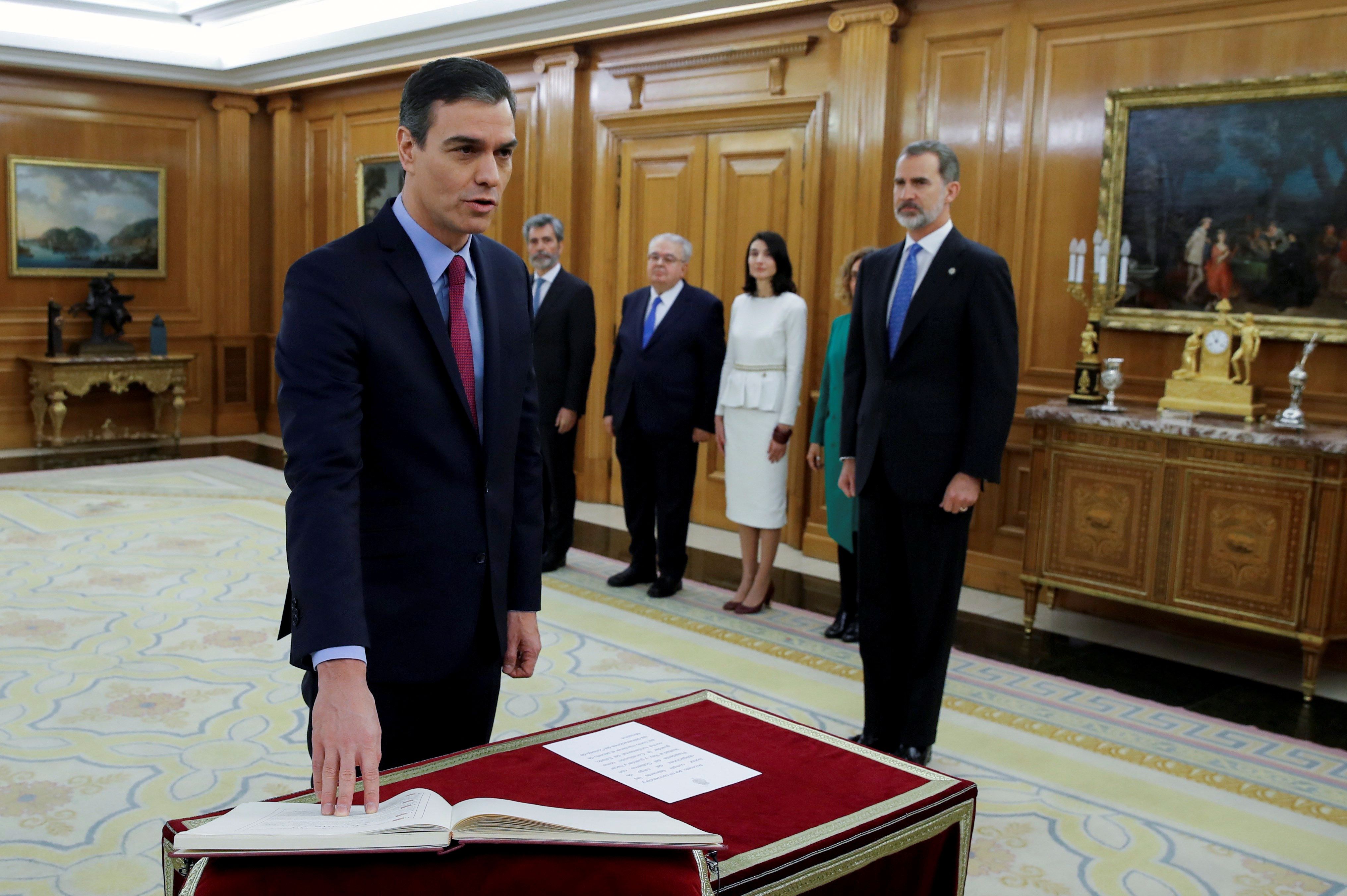The Formation of the Left-wing Coalition Government in Spain

What is the structure of the new government?
Its composition will be announced after 12 January. It is known that the deputy prime ministers will be PSOE’s Nadia Calviño (economy) and Carmen Calvo (relations with parliament) and UP leader Pablo Iglesias (social issues). He will probably also supervise migration policy, which may result in the liberalisation of Spain’s position. Iglesias may also favour granting asylum to officials of Latin American regimes supported by UP—ones led by Evo Morales in Bolivia and Nicolas Maduro in Venezuela. UP will take four new ministries, separate from existing ones: labour, equality, universities, and consumption. Ministers from the temporary PSOE government, including Margarita Robles—acting foreign minister since Josep Borrell became the chief of EU diplomacy—are likely to retain their positions.
Who supported the government and at what price?
Because of the lack of an absolute majority in the first vote on 5 January, two days later a second vote was held but requiring only a simple majority. The Sánchez cabinet was supported by 158 MPs from PSOE, UP, and Más Pais and nine MPs from regional parties. In return, the regional parties received promises such as increasing the competences of Autonomous Communities and partial repayment of their debts. Crucial to the formation of the government was the abstention of 18 MPs from the separatist parties Republican Left of Catalonia (ERC) and Basque EH Bildu. Previously, PSOE undertook to recognise Catalonians and Basques as national minorities and to establish a so-called roundtable to resolve the conflict between the central and Catalan governments over the independence of the region.
What is the coalitions’ programme?
The government is planning labour reform, increases in the minimum wage and healthcare spending, and exempting the poorest from utility charges. Also on its agenda are plans to decarbonise the economy, subsidise electric vehicles, implement 5G technology and develop artificial intelligence. State revenue is expected to increase through, for example, the introduction of digital and financial transaction taxes and by eliminating tax fraud. Spain's economic interests are to be implemented through the establishment of the EU minimum wage, unemployment insurance, and fiscal harmonization in the EU. The government is also in favour of establishing a solidarity mechanism for the distribution of migrants between the EU Member States and fully abolishing unanimity in EU foreign policy decision-making.
What challenges await the new government?
The main challenges for the government will be maintaining support from the majority of parliament and de-escalating the conflict with Catalonia. Separatist aspirations in this region are rejected by most Spaniards; however, with 165 opposition MPs, the government needs ERC support to win votes. One of the first concessions to the separatists will likely be amnesty for ERC leader Oriol Junqueras, the release of whom was recommended by the European Court of Justice. At the same time, the carrying out of promises to voters and parliamentary allies will increase the budget deficit, which may prevent the government from implementing the recommendations of the European Commission to maintain budgetary discipline and weaken its position in negotiations concerning the allocation of funds from the EU budget.
What does the new Spanish government mean for Poland?
The Spanish government’s proposals to establish an EU minimum wage, unemployment insurance, and fiscal harmonisation are not in the interests of many Polish companies. Poland and Spain have divergent positions on the rate of decarbonising their economies and they compete for EU funds. The Polish government is opposed to the abolition of the unanimity rule used when deciding EU foreign policy issues, the Union’s budget and the introduction of taxation at the EU level. Entrusting supervision of migration policy to UP may increase the differences between Poland and Spain on this issue. Giving asylum to antiAmerican politicians may also weaken Spain's relations with the U.S. Areas of Polish-Spanish cooperation may include electromobility development and the fight against tax fraud.


